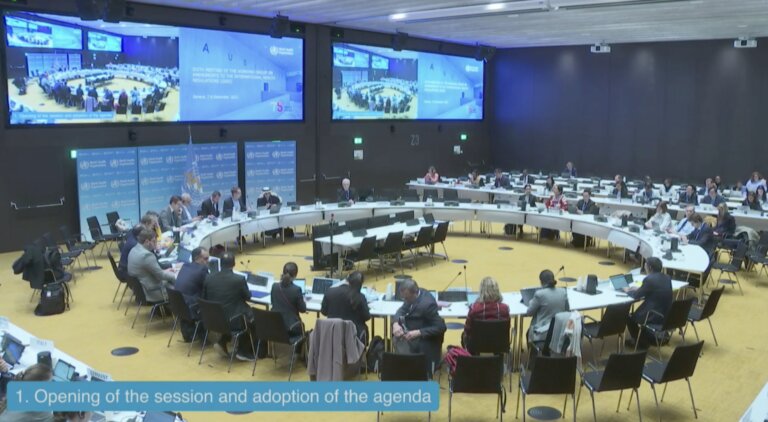The United States formally rejected a package of amendments to the World Health Organization's (WHO) International Health Regulations (IHR), signaling a major shift in U.S. policy on global health security. The amendments, which were adopted by consensus by the World Health Assembly in 2024 with the active participation of the previous U.S. administration, were designed to strengthen the world's defenses against future pandemics based on the lessons learned from the global response to COVID-19. The rejection was announced in a joint statement by the Department of State and the Department of Health and Human Services (HHS), led by Secretary of State Marco Rubio and HHS Secretary Robert F. Kennedy, Jr.. The Trump administration's justification for the rejection centers on the argument that the amendments represent a dangerous overreach of WHO authority and an infringement on U.S. sovereignty. Officials claimed the amended regulations would grant the WHO the power to order "global lockdowns, travel restrictions, or any other measures it sees fit" in response to "nebulous 'potential public health risks'".
The administration also criticized the amendments' terminology as "vague and broad," asserting that they prioritize political concepts like "solidarity" and "equitable access" over "rapid and effective actions". Secretary Kennedy further alleged that the amendments would open the door to "narrative management, propaganda, and censorship" and would require the U.S. to cede its "treasured sovereignty". This characterization was forcefully rebutted by the WHO and international legal experts, who described the U.S. claims as being based on "inaccuracies" and "falsehoods".
WHO Director-General Dr. Tedros Adhanom Ghebreyesus clarified that the amendments are designed to improve cooperation among member states, not to empower the WHO, and that they explicitly reaffirm the principle of national sovereignty. He stressed that the WHO "has never had the power to mandate lockdowns, travel restrictions or other such measures," as these powers reside solely with member states. Lawrence Gostin, a leading expert in global health law at Georgetown University, concurred, stating that the U.S. administration's claims were "all falsehoods" and that the IHR, in fact, promotes accurate information and protects civil liberties without affecting U.S. sovereignty. The U.S. rejection is part of a broader policy shift consistent with the "Project 2025" governing blueprint, which advocates for a withdrawal from international agreements and institutions perceived as constraining U.S. autonomy. The move follows the U.S. exit from negotiations for a separate but related pandemic treaty and signals a decisive turn toward a "sovereign, nation-first approach to future health crises".
Source: Health Policy Watch



